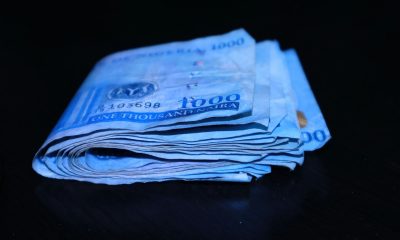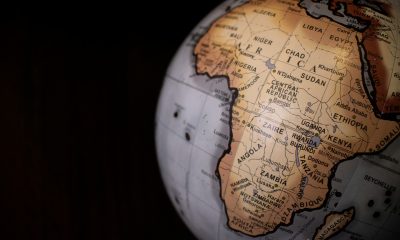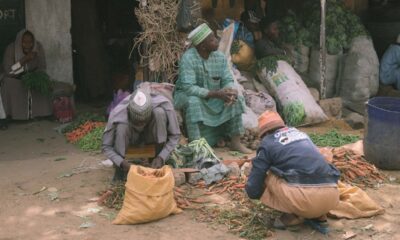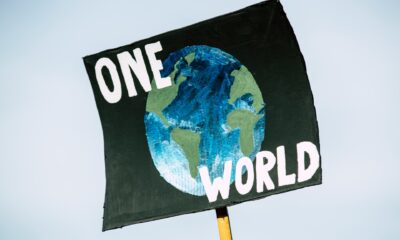Africa
Over 100 Projects Financed by the AfDB in Burkina Faso
AfDB’s purpose is to fight poverty and improve living conditions on the continent by promoting public and private capital investments in projects and programs that contribute to economic and social development in member states. Burkina Faso and the AfDB have a long tradition of cooperation dating back to 1970, with more than 100 projects financed for a cumulative amount of $1.83 billion (CFAF 1.2 trillion).

The Secretary General of the Ministry of Economy, Nicolas Kobiané, presided over the opening of a training workshop on procurement, financial management and disbursement on Monday, November 7th, 2022. The work, which brings together specialists in procurement, administrative and financial managers, accounts, and external auditors, continues until November 10th. On the sidelines of this workshop, jointly organized by the Ministry of Economy and the African Development Bank (ADB), will be held a meeting to monitor the performance of the portfolio and the improvement plan developed jointly with all stakeholders in the implementation of projects within the administration.
These two activities are opportunities for participants to talk to each other, get to know each other better, and consider together practical responses to recurring problems and constraints that slow down the effective implementation of projects and the achievement of development objectives. After recalling the importance of financial resources in the implementation of projects and programs, the Secretary General of the Ministry of Economy said that supervision missions held with the African Development Bank in Burkina Faso, have identified some shortcomings in the implementation of projects and programs funded by the bank.
Read more on the subject and find the latest economic news from around the world with the Born2Invest mobile app.
Participants promise fruitful exchanges
These shortcomings include the frequent rejection of procurement files, disbursement requests, financial management, and procurement. In order to fill this gap and ensure the effective implementation of projects and programs, the need for continuous sensitization and familiarization of stakeholders with AfDB rules and procedures was expressed.
Burkina Faso and the AfDB have a long tradition of cooperation dating back to 1970
With more than 100 projects financed for a cumulative amount of $1.83 billion (CFAF 1.2 trillion), the Bank has established itself half a century later as one of the country’s main donors, multiplying interventions in key development sectors. “We currently have a portfolio of about 500 billion CFA francs covering several sectors,” said AfDB Country Manager Daniel Ndoye.
For the AfDB country manager in Burkina Faso, Daniel Ndoye, this workshop will help to select targeted actions whose progress will be monitored during future workshops and meetings on the portfolio.
Nearly half of the public portfolio commitments are directed to the transport sector (49%), followed by the energy sector (30%), agriculture and environment (17%), water and sanitation (2%), and 2% for social sectors. Beyond project financing, the bank’s interventions integrate the new challenges facing Burkina Faso, mainly the deteriorating security situation, the humanitarian crisis, and the food crisis exacerbated by the effects of the Russian-Ukrainian conflict. As an illustration, Mr. Ndoye noted that the Bank supports the care of internally displaced persons in the Sahel, North Central, and Northern regions, describing the cooperation between the AfDB and Burkina as being of high quality.
Despite everything, he believes that it is always good to see where there are difficulties and seek to improve them. This is the objective of this four-day workshop that brings together procurement specialists, administrative and financial managers, accountants, and internal auditors.
Specifically, according to the country manager, it will be a matter of “identifying the bottlenecks that we have in the procurement procedure, financial management, disbursements that may sometimes be related to misunderstandings in the mastery of the rules of procedure of the bank. In view of the importance of this activity, he encouraged participants to remain active and assiduous during these four days of training, so that the results of this workshop are felt throughout the chain of project execution. This type of workshop, it should be noted, is a concrete manifestation of the capacity-building strategy that the Bank has been implementing for a number of years with the aim of facilitating the implementation of the projects it finances in the regional member countries.
Presentation of the AfDB
Established on August 4th, 1963, the AfDB Group, according to officials, comprises three entities: the AfDB itself, and two concessional windows, the African Development Fund (ADF) and the Nigeria Trust Fund (NTF).
The bank’s purpose is to fight poverty and improve living conditions on the continent by promoting public and private capital investments in projects and programs that contribute to economic and social development in member states. Since 2015, it has focused its interventions on five major development priorities, known as the “High Five”: lighting and providing energy to Africa; feeding Africa; industrializing Africa; integrating Africa, and improving the quality of life of Africans.
__
(Featured image by Kyle Glenn via Unsplash)
DISCLAIMER: This article was written by a third party contributor and does not reflect the opinion of Born2Invest, its management, staff or its associates. Please review our disclaimer for more information.
This article may include forward-looking statements. These forward-looking statements generally are identified by the words “believe,” “project,” “estimate,” “become,” “plan,” “will,” and similar expressions. These forward-looking statements involve known and unknown risks as well as uncertainties, including those discussed in the following cautionary statements and elsewhere in this article and on this site. Although the Company may believe that its expectations are based on reasonable assumptions, the actual results that the Company may achieve may differ materially from any forward-looking statements, which reflect the opinions of the management of the Company only as of the date hereof. Additionally, please make sure to read these important disclosures.
First published in lefaso.net, a third-party contributor translated and adapted the article from the original. In case of discrepancy, the original will prevail.
Although we made reasonable efforts to provide accurate translations, some parts may be incorrect. Born2Invest assumes no responsibility for errors, omissions or ambiguities in the translations provided on this website. Any person or entity relying on translated content does so at their own risk. Born2Invest is not responsible for losses caused by such reliance on the accuracy or reliability of translated information. If you wish to report an error or inaccuracy in the translation, we encourage you to contact us.

-

 Biotech2 weeks ago
Biotech2 weeks agoTwogee Biotech Advances Industrial Enzyme Solutions for Circular Production
-

 Crypto1 day ago
Crypto1 day agoUniswap and BlackRock Partner to Launch BUIDL in DeFi
-

 Cannabis1 week ago
Cannabis1 week agoScientifically Verified F1 Hybrids Set New Benchmark for Indoor Cannabis Yield and Consistency
-

 Fintech4 days ago
Fintech4 days agoImpacta VC Backs Quipu to Expand AI-Driven Credit Access in Latin America
























